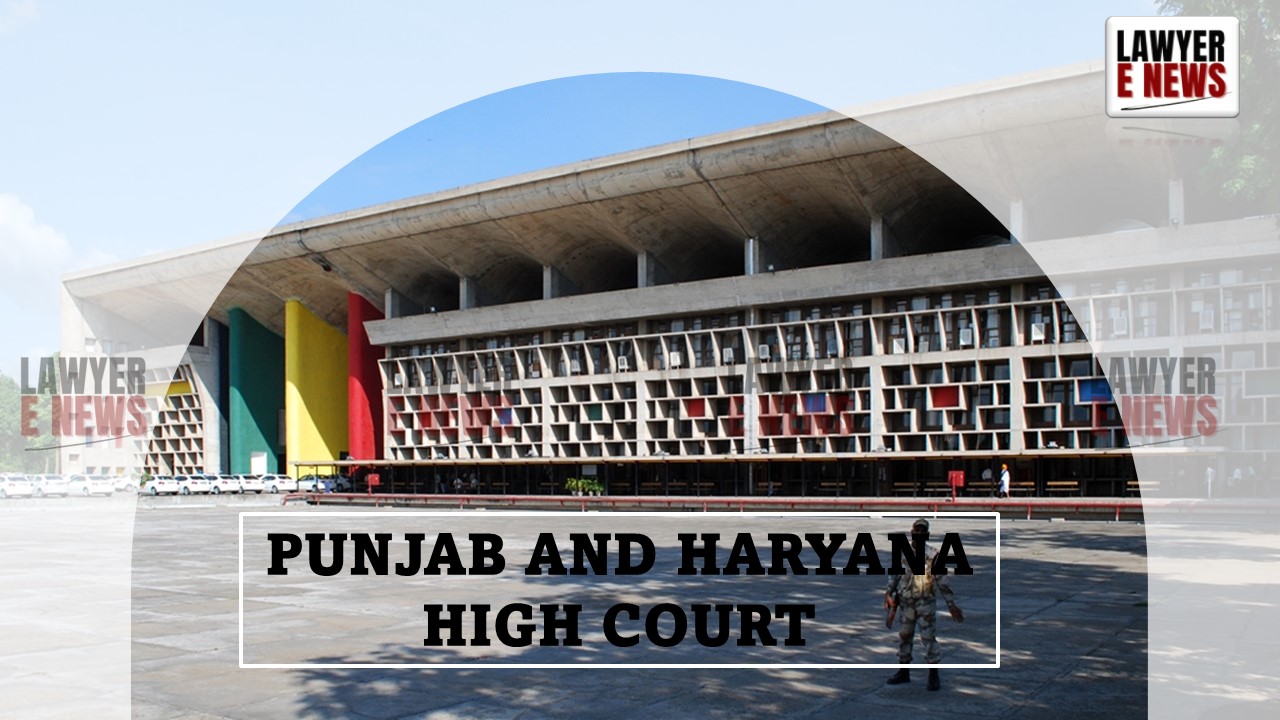-
by Admin
15 February 2026 5:35 AM



Article 21 Must Protect Life and Liberty, Irrespective of Marital or Social Norms. On September 9, 2024, the Punjab and Haryana High Court delivered a landmark ruling in CRWP No. 4660 of 2021, CRWP No. 149 of 2024, and LPA No. 968 of 2021. The case dealt with the right to protection for individuals in live-in relationships, even when one partner is married. The court reaffirmed that Article 21 of the Constitution, which guarantees the right to life and liberty, must prevail over societal norms, emphasizing individual dignity and autonomy in relationships.
Background of the Case: The case originated from multiple writ petitions where the petitioners, despite being married to third parties, sought protection for their life and liberty while living in a live-in relationship. Both Yash Pal and another (petitioners in CRWP No. 4660/2021) and Komal and another (petitioners in CRWP No. 149/2024) claimed threats from their families and society due to their relationships. Earlier, in LPA No. 968 of 2021, protection had been denied by the High Court, citing concerns about the social fabric being disrupted by such relationships.
Legal Issues at Hand and Court Observations: The legal question centered on whether courts are bound to provide protection to individuals in live-in relationships, even if one partner is married, and whether societal concerns should override the constitutional guarantee under Article 21.
Right to Life and Liberty (Article 21): The petitioners contended that irrespective of their marital status, they are entitled to protection of their life and liberty under Article 21. The respondents argued that granting protection in such cases would disrupt the social fabric, citing moral and societal objections.
Previous Case Law: The court considered precedents, including Joseph Shine v. Union of India, which decriminalized adultery and emphasized the autonomy and privacy of individuals in intimate relationships.
Societal Morality vs. Constitutional Rights: The court ruled that societal morality cannot outweigh the fundamental rights guaranteed by the Constitution. The right to live with dignity, as part of Article 21, encompasses the right to choose one’s relationships, including live-in arrangements, even if one partner is married.
Protection Must Be Granted If Genuine Threat Exists: The court held that individuals in live-in relationships are entitled to protection if there is a genuine threat to their life and liberty, irrespective of their marital status.
Mechanism for Protection: The court outlined a mechanism where couples seeking protection should first approach District Legal Services Authorities or the State Human Rights Commission for counseling and mediation before filing writ petitions, thereby easing the burden on courts and police.
Minors in Live-In Relationships: The court ruled that minors cannot enter live-in relationships due to legal incapacities under the Hindu Minority and Guardianship Act, 1956, and the Juvenile Justice (Care and Protection of Children) Act, 2015. Minors involved in such relationships would be placed in the custody of guardians or sent to care homes if necessary.
Previous Rulings Overturned: The court overturned its earlier decision in LPA No. 968 of 2021, which had denied protection to married individuals in live-in relationships. It ruled that Article 21 must prevail over concerns about the social fabric, emphasizing that protection must be provided if genuine threats to life and liberty exist.
The High Court allowed CRWP No. 4660 of 2021 and CRWP No. 149 of 2024, granting protection to the petitioners, and dismissed LPA No. 968 of 2021, affirming the primacy of constitutional rights over societal norms.
Date of Decision: September 9, 2024
Yash Pal and another v. State of Haryana and others
